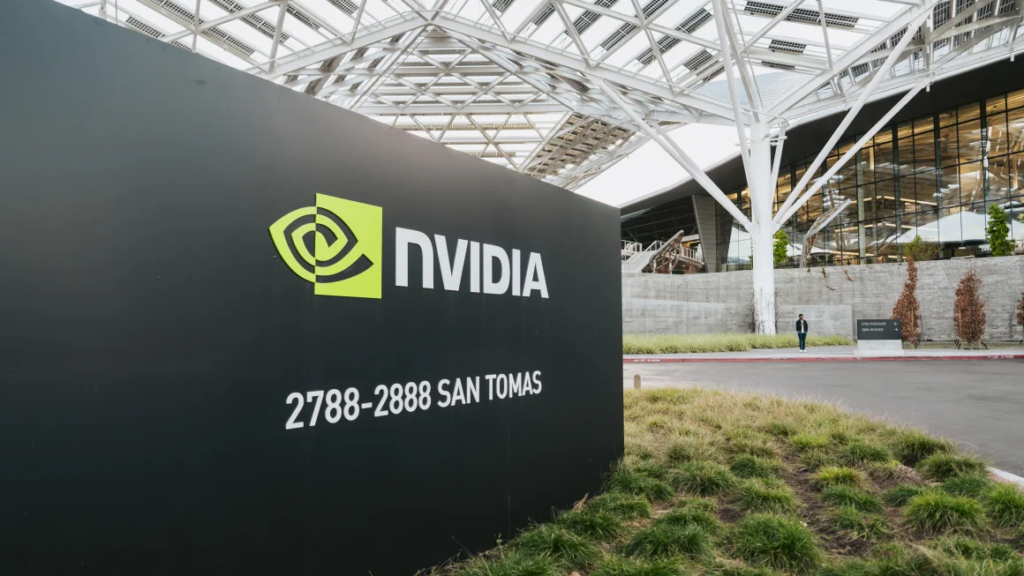The global chip shortage may be easing, but a new battleground is emerging: the fight for chipmaking supremacy between tech titans Nvidia and Huawei. This isn’t just a corporate duel; it has geopolitical implications that could reshape the future of the semiconductor industry.

Nvidia headquarters in Santa Clara, California pictured on February 15, 2024. Photo: Bloomberg.
Nvidia’s Reign and Huawei’s Rise
Nvidia, the undisputed leader in graphics processing units (GPUs), has long powered the gaming and AI revolution. Their high-performance chips are the backbone of data centers and fuel the development of cutting-edge artificial intelligence. However, a new challenger has emerged in China’s Huawei.
Huawei’s Ambitious Climb
Crippled by US sanctions that restrict access to American technology, Huawei has embarked on an ambitious plan to become self-sufficient in chip production. Their in-house chip design arm, HiSilicon, has made significant strides in recent years, developing their own Kirin series of mobile processors. Now, Huawei sets its sights on the lucrative AI chip market, a space traditionally dominated by Nvidia.
The Battleground: AI Chips
The battleground for dominance lies in the realm of AI chips. These specialized processors are designed to excel at complex calculations needed for tasks like facial recognition, natural language processing, and advanced machine learning. Nvidia’s dominance with their powerful GPUs positions them favorably, but Huawei is determined to compete.
Huawei’s Ascend vs Nvidia’s CUDA
Huawei has developed its own AI chip architecture called Ascend. While details remain murky, Ascend aims to compete with Nvidia’s dominant CUDA platform, a combination of hardware and software that allows developers to leverage Nvidia’s GPUs for AI applications. To counter Nvidia’s established developer ecosystem, Huawei will need to build a robust software environment around Ascend.
The Geopolitical Angle
The US-China trade war casts a long shadow on this rivalry. The US government’s restrictions on Huawei limit their access to crucial chipmaking technologies. This could hinder Huawei’s ability to catch up to Nvidia, but it could also spur further innovation within China’s domestic chip industry.
The Future of Chipmaking
The outcome of this chip war will have significant ramifications. Will Nvidia maintain its dominance, or will Huawei disrupt the market with competitive AI chips? The answer will likely determine which company leads the next wave of technological advancements powered by artificial intelligence. This is a battle not just for market share, but for technological leadership in the 21st century.
Admin

